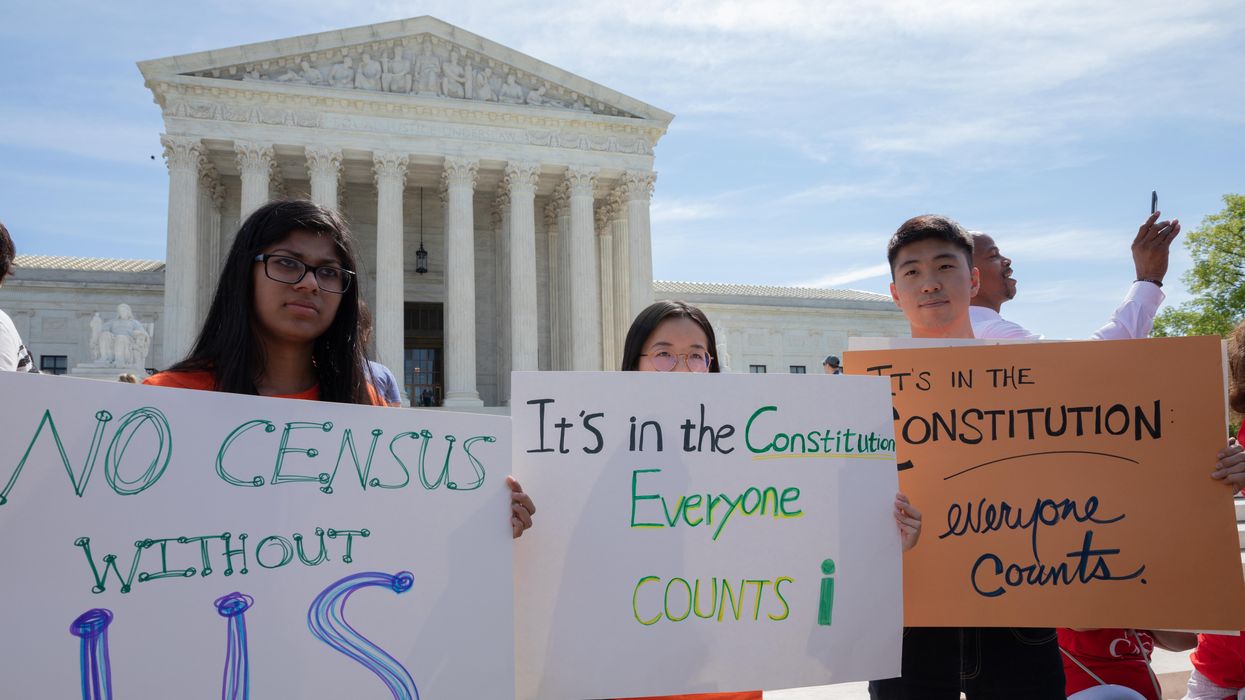The Supreme Court on Friday kept alive President Trump's efforts to upend before he leaves office how the nation's congressional lines are drawn — by no longer counting undocumented immigrants as people deserving representation.
The court dismissed a lawsuit seeking to block the president, concluding it was premature to consider. The three liberal justices dissented, saying they were ready to declare the president's plan unlawful.
The issue is theoretically vital to the future of the one-person-one-vote principle, long a bedrock of American democracy. But the Trump administration now has only its final five weeks to complete its effort to abandon that concept, a deadline widely expected to prove too tight. And even if the administration does follow through in time, fresh legal challenges would surely follow — and the new Biden administration would be expected to work to abandon the idea.
Trump in July ordered the Commerce Department to undertake a precise count of the number and whereabouts of the nation's estimated 10.5 million undocumented immigrants, then use that report in determining how many seats in the House of Representatives each state should have for the next decade — on the theory those immigrants don't merit any political influence because they are not permanent residents.
Since the 18th century, congressional apportionment has always been done based only on the number of people in each state, as counted by the census.
Trump's supplementary count had proved difficult, and the administration conceded at oral arguments last month that it looks unlikely to be completed in the next month. Trump is supposed to give his apportionment report to Congress by the second week of January.
Subtracting the number of undocumented immigrants could mean one fewer House seat for the rest of the 2020s for California, Illinois and Arizona, all states colored blue on this year's presidential map, as well as Florida and Texas, which were tossup purple for most of the campaign but were carried by Trump in the end.
States gaining seats would likely be older, whiter and Republican. One model suggests that blue Minnesota, along with red Ohio and Alabama, would all be able to hang on to seats that will be imperiled under the traditional apportionment — which also has the effect of assigning electoral votes to the states.
Carrying out Trump's policy would also shift the distribution of about $1.5 trillion in federal funds in the next decade away from urban areas and toward rural places.
"At present, this case is riddled with contingencies and speculation that impede judicial review," the court's unsigned majority opinion said. "To begin with, the policy may not prove feasible to implement in any manner whatsoever, let alone in a manner substantially likely to harm any of the plaintiffs here."
But Justice Stephen Breyer disagreed in a dissent joined by Justices Elena Kagan and Sonia Sotomayor.
"The plain meaning of the governing statutes, decades of historical practice, and uniform interpretations from all three branches of government demonstrate that aliens without lawful status cannot be excluded from the decennial census solely on account of that status," Breyer said. "The government's effort to remove them from the apportionment base is unlawful, and I believe this court should say so."
Dale Ho, the top voting rights lawyer for the American Civil Liberties Union, which represents some of the challengers, said the ruling was a temporary setback "only about timing, not the merits."
If Trump implements the policy in his presidency's final days, Ho said, a fresh lawsuit will be at the ready.
The heart of the argument will be that the Constitution says apportionment of the House is to be based on "the whole number of persons in each state" as determined by the census. But the president's lawyers told the Supreme Court that he gets to decide whether undocumented immigrants should be counted.




















Marco Rubio is the only adult left in the room